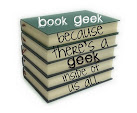Paperback: £ 7.99
Publisher: Bloomsbury
Yep, apparently another WW2 book. I have admitted before and I'll admit it again I find WW2 really really interesting in some respects. However, I'm afraid that this is another book influenced by that time that isn't great. I was pleased to receive this book from Bloomsbury as I'd heard many good things about The Spy Game....I am now doubting these good things.....
Firstly, the sentence structure is really bizarre and rather awkward in places. It reads as if it has been translated from another language. The name Georgina Harding doesn't make me think that the author is not a native english speaker but the narrative voice on many occasions certainly makes me think that.
The story did make me feel sad about the total lack of understanding there was for people who are deaf! This was less than 100 years ago and it is incredible to see how our educational skills have developed. Augustin would have been a very different young man if he was alive now and not pre/during/post war. I'll stick with the characters seeing as I've mentioned Augustin. Safta was annoying. She may have a pretty cool name but bloody hell was she a winey bitch. Yes, to an extent she got on with things but she was so damn reflective and wishy washy in many other respects that she just ended up annoying me. To be honest, there wasn't really a character I completely liked or trusted at all in the entire book. I found continuous flaws with many of them, or traits I just couldn't get on board with. I did enjoy Augustin's sections the most, but I think this is because I found his deafness and muteness so interesting as his situation is completely removed from me.
I was intrigued to read the book despite the downsides. I couldn't really see where the story was going so I wanted to know what would happen. There was no overly obvious plot for the novel to follow. Yes Safta was annoying but I wanted to know about why she fled and what was so bad about her past. Yes Augustin was a mute and found it hard to do anything when it came to interaction but it was really interesting reading about how he functioned, communicated and well, lived in general.
Overriding the whole novel though was LURVE. BLOODY HELL! Why does everyone have to romanticise war?? Why can't people just follow through and tell you from start to finish how bloody awful it was?? I would love to read a book that doesn't try to make things happy and better in the end. I have a very vivid imagination but I do enjoy a shot of reality. Hell, misery is even great sometimes!
Similarly to The Beautiful Truth, the right type of person would no doubt love this book, but for me it was just too sappy and romanticised.
Happy Reading
Book Geek
:-)


















.jpg)







